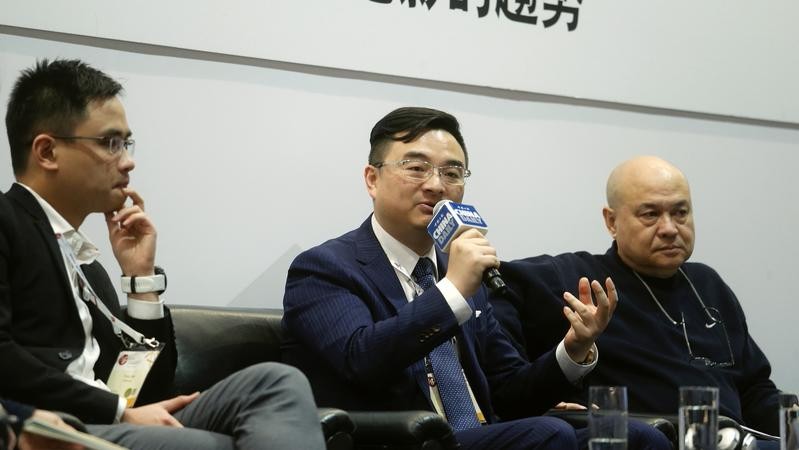2017-12-08
Dara Wang

Hong Kong is well placed as the springboard for the Chinese mainland’s booming intellectual property adaptation industry, reckons Luo Li, a prominent online-writer-turned-vice-head of the country’s largest online publishing company. Luo, vice-president of China Literature, also known as Yuewen Group, made the remarks in an interview with China Daily on Thursday on the sidelines of a roundtable on IP adaptation co-organized by China Daily and the Hong Kong Trade Development Council. Intellectual property specifically refers to the adaptation of online fiction with significant readership into films, television series, cartoons and online games. With 77 percent of its income deriving from online reading last year, Luo said, China Literature will focus on IP adaptation and position Hong Kong as the springboard for penetration into the Asia-Pacific market in future. China Literature — the online publishing arm of mainland tech titan Tencent Holdings — raised US$1.1 billion through an initial public offering when it went public on the Hong Kong bourse last month. Luo said China Literature’s products will no longer target a specific market, but cater to all markets where Chinese culture is popular. “And, Hong Kong is the best place for us to start going global.” He said Hong Kong is an international city where East meets West. The city’s openness is the advantage that many people elsewhere place great value in, while some local people may ignore it, he said. Yuewen Group — an online bookstore with 10 million e-books and 600 million registered readers — is being seen as a lucrative emerging business with the prevalence of popular IP adaptation gaining huge viewership online in and outside China. China Literature is trying to engage more readers and consumers with diverse backgrounds. “Extending the business in Hong Kong where people are familiar with both Eastern and Western culture will be a good start for establishing our international fan base,” Luo said. China Literature is discussing cooperation on IP adaptation with writers in Hong Kong. Classical literature or comics, such as Jin Yong’s wuxia novels and Ma Wing-shing’s much-loved work Fung Wan, are on top of the company’s list. The company is also exploring new works in the SAR’s online community. “As long as the work has the potential for diverse IP adaptation, we’re open to any sort of cooperation,” Luo said. He urged Hong Kong’s online novel writers to consider the overall interests of the majority of the people and promote Chinese culture as the core of their work. Only in this way can Hong Kong’s online literature win the hearts of the Chinese-speaking community and restore the vitality of its literature and related industry, he said. Luo said he saw a niche interest among Hong Kong online writers who only produce work that cater to a small group of people in the city. Some of the expressions and contents are hard for people outside the cultural sphere to understand. As the city’s online novel industry is shrinking, writers and publishers must find good sources that are suitable for IP adaptation, and develop popular entertainment products to cater to the entire Chinese-speaking community in Asia and the world, Luo said. dara@chinadailyhk.com